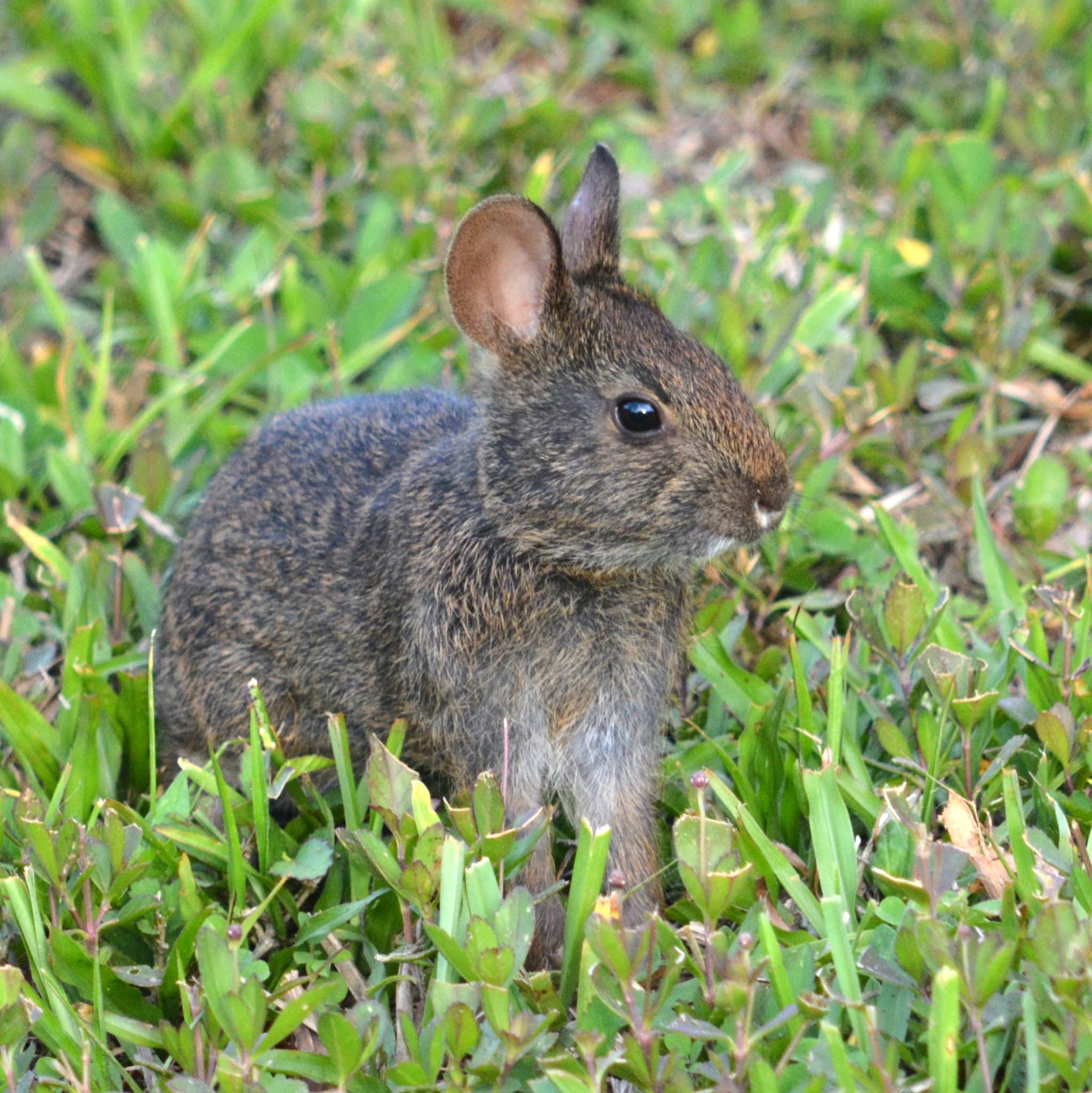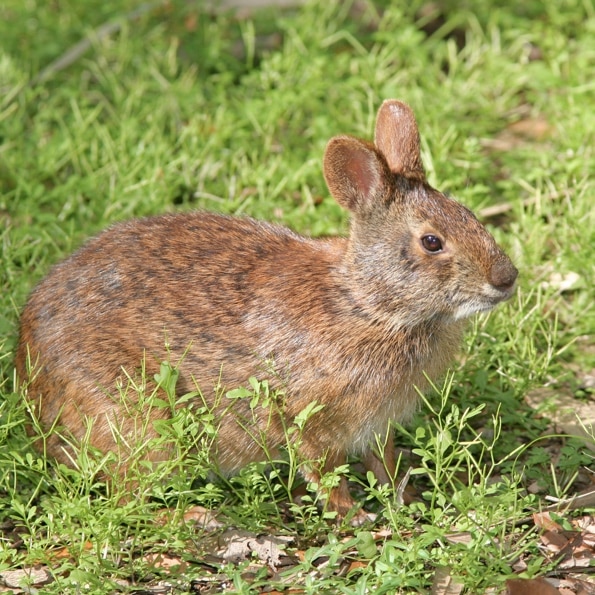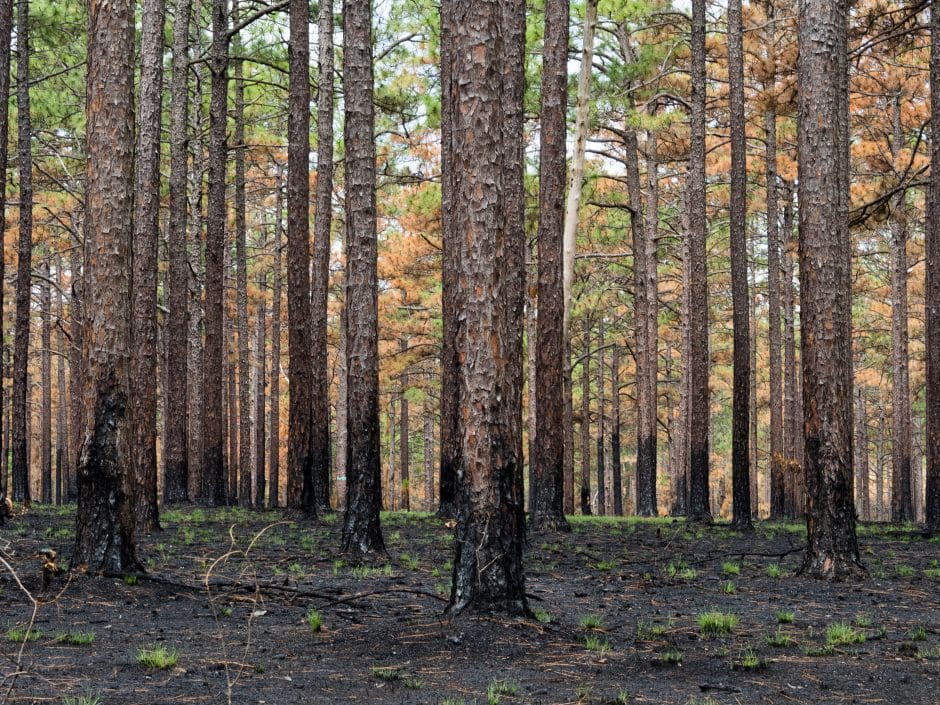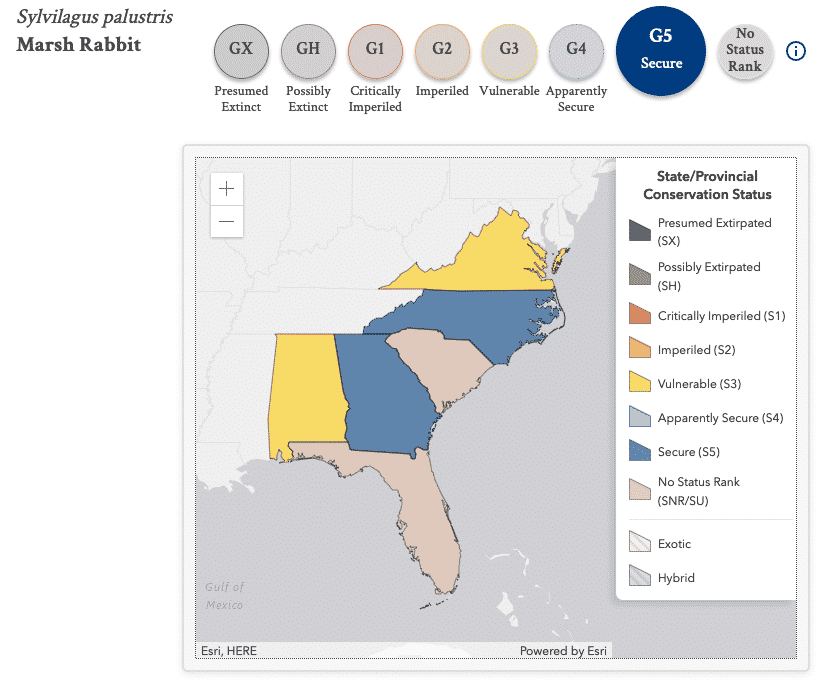Marsh Rabbit
Sylvilagus palustris
Status: Secure
The Marsh Rabbit has slightly different features when compared to other cottontails. Marsh rabbits can be dark brown or reddish brown with a darker belly. They have short feet and round ears. Unlike other cottontails, their tails have a dark color underneath. They are about 14 to 16 inches in length.


Habitat & Range
Marsh rabbits pick their habitats depending on if a water source is available. Like their name suggests, they are often found near marshes. They are great swimmers and will sometimes dive underwater to escape predators. These rabbits are found in the southeastern U.S. in Virginia, Georgia, Alabama, and Florida.
Food Web & Energy Flow
The diet of marsh rabbits includes berries, grasses, roots, flowers, and aquatic plants. These rabbits are primary consumers and herbivores since they only eat plants.
Relationship to Fire
Marsh rabbits are nocturnal which means they are active at night. During the day, marsh rabbits use dense vegetation for protection and shelter. They need frequent fires in the area to keep the understory growing. Without the dense understory, they can be easily seen by predators which can cause their population to decline.

Conservation Status
The overall conservation status for marsh rabbits is Secure. Although their population is not currently under a major threat, they are still experiencing habitat loss.

Human Impacts/ Threats

Land Use Conversion
Longleaf forests and the habitat it supports is being cleared or converted to use the land for other uses like houses, roads, agriculture, and even to grow different types of trees to sell.

Fire Suppression
Many people think of fires in the forest as bad, so they work hard to prevent or suppress them. But longleaf forests NEED regular fire to support habitat for the species that live there!
Resources
Animal Diversity Web. Marsh Rabbit
Florida Fish & Wildlife Conservation Commission. Land Mammals
Chesapeake Bay Program. Field Guide
Virginia DWR. Marsh Rabbit
